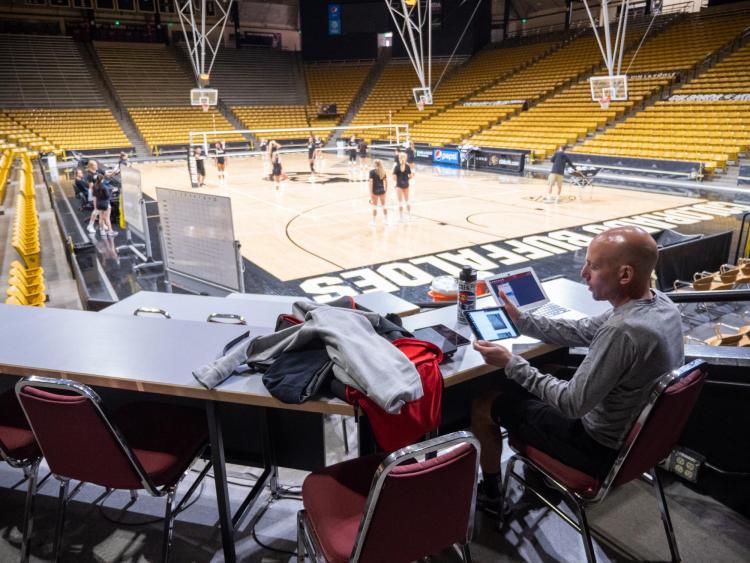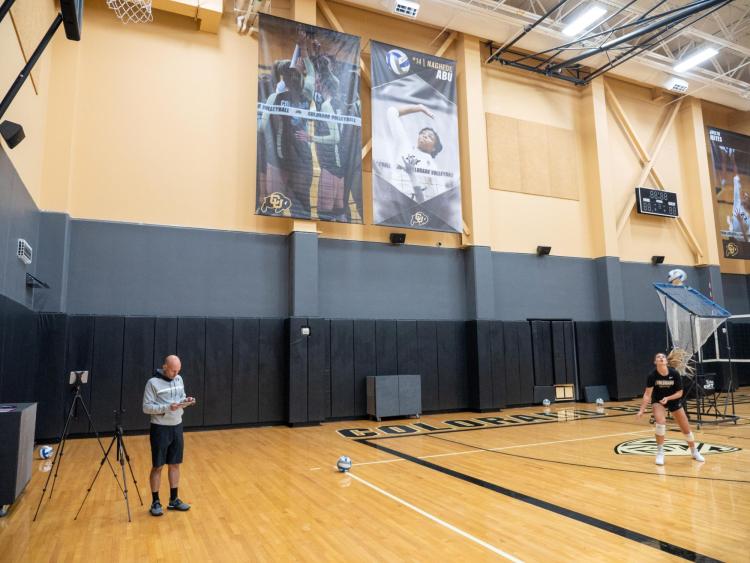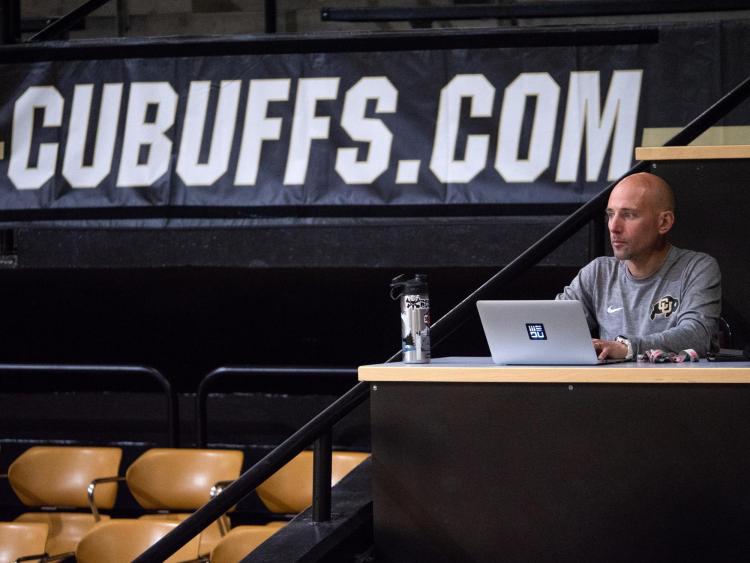Students in Focus: Volleyball tech guy setting for success with master's

Eduardo Fiallos, technical coordinator for women’s volleyball at CU Boulder, pays attention to the often-overlooked moments of discovery when he thinks, “That’s interesting.” Those little “aha” moments in data analytics let him know he’s having an impact on the team’s opportunities to win.
In his second season with Colorado volleyball, Fiallos returned to school this fall to get an MA in education through the learning sciences and human development program at CU.
[soundcloud width="100%" height="166" scrolling="no" frameborder="no" allow="autoplay" src="https://w.soundcloud.com/player/?url=https%3A//api.soundcloud.com/tracks/506574249&color=%23ff5500&auto_play=false&hide_related=false&show_comments=true&show_user=true&show_reposts=false&show_teaser=true"][/soundcloud]
Fiallos came to CU Boulder after spending four seasons at the University of Denver. In 2016, he was director of operations and from 2013 to 2016, Fiallos served as volunteer assistant coach. He coached three seasons with Buffs volleyball coach Jesse Mahoney while at the University of Denver.
In his position as technical coordinator, Fiallos makes and coordinates video, and compiles statistical analysis in practice and competition. He also helps develop and create graphics and video projects used to feature the vision and goals of the volleyball program.
While the technical coordinator position in volleyball has been around at the international level for a while, it is now making its way into college volleyball in the United States, Fiallos said. He is one of few in the country in this position.
“It’s a fun job for me,” he said. “I’ve coached volleyball for a longtime. While I was coaching, I got interested in the stats of volleyball. Those became important to me, so this position is a good combination of applying critical thought and the numbers to how we coach.”
While examining training statistics related to how they rotated players, Fiallos discovered that changing the rotation could result in a higher score.


Fiallos got into coaching volleyball by playing club volleyball while a student at the University of Arizona. As a high school teacher in Anaheim, California, and then Denver, Colorado, he realized teaching and coaching are similar in how they get the student engaged in the topic. He believes, to teach a student a subject, instructors or coaches not only need to know the subject well, they must get to know the specific ways an individual student learns best.
“The only difference between them is that coaching is teaching in sweatpants,” he said. “As teachers, coaches and educators, our tendency is to be content experts only. I’ve been teaching and coaching for a long time, and I’ve become fascinated with how we learn. It’s like the cliché about how you haven’t really taught it until they’ve learned it.”
It’s been an interesting transition for Fiallos, who admits he wasn’t the best of students, graduating with a C average from the University of Arizona in 1998.
Working with advisors to help chart his course through graduate school has helped. By talking about his interests with advisors, Fiallos can better plan his studies and ensure the courses he takes will be professionally beneficial.
“I don’t know if I know how to be a student again,” he said. “Do I just show up with a notebook and a pen? The internet was not really a thing when I was an undergraduate. Learning is about exchanging ideas. It doesn’t matter what medium the ideas are in. As long as I can wrap my head around the ideas, then I can still learn. The rest is just deadlines.”
Drawing on his passion for education, Fiallos is developing a more formal and rigorous research and methods approach to training and competition.
“I’m strongly motivated by what I can learn and how I can apply what I learn,” he said. “A master’s degree from CU will help me be a better educator. It will help me be a better mentor.”


